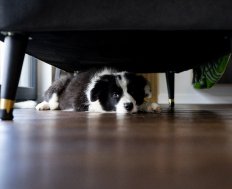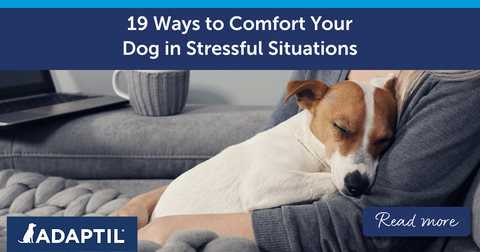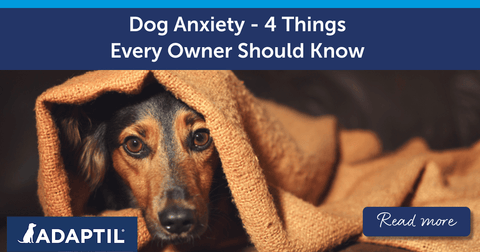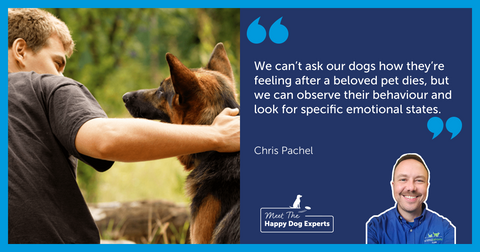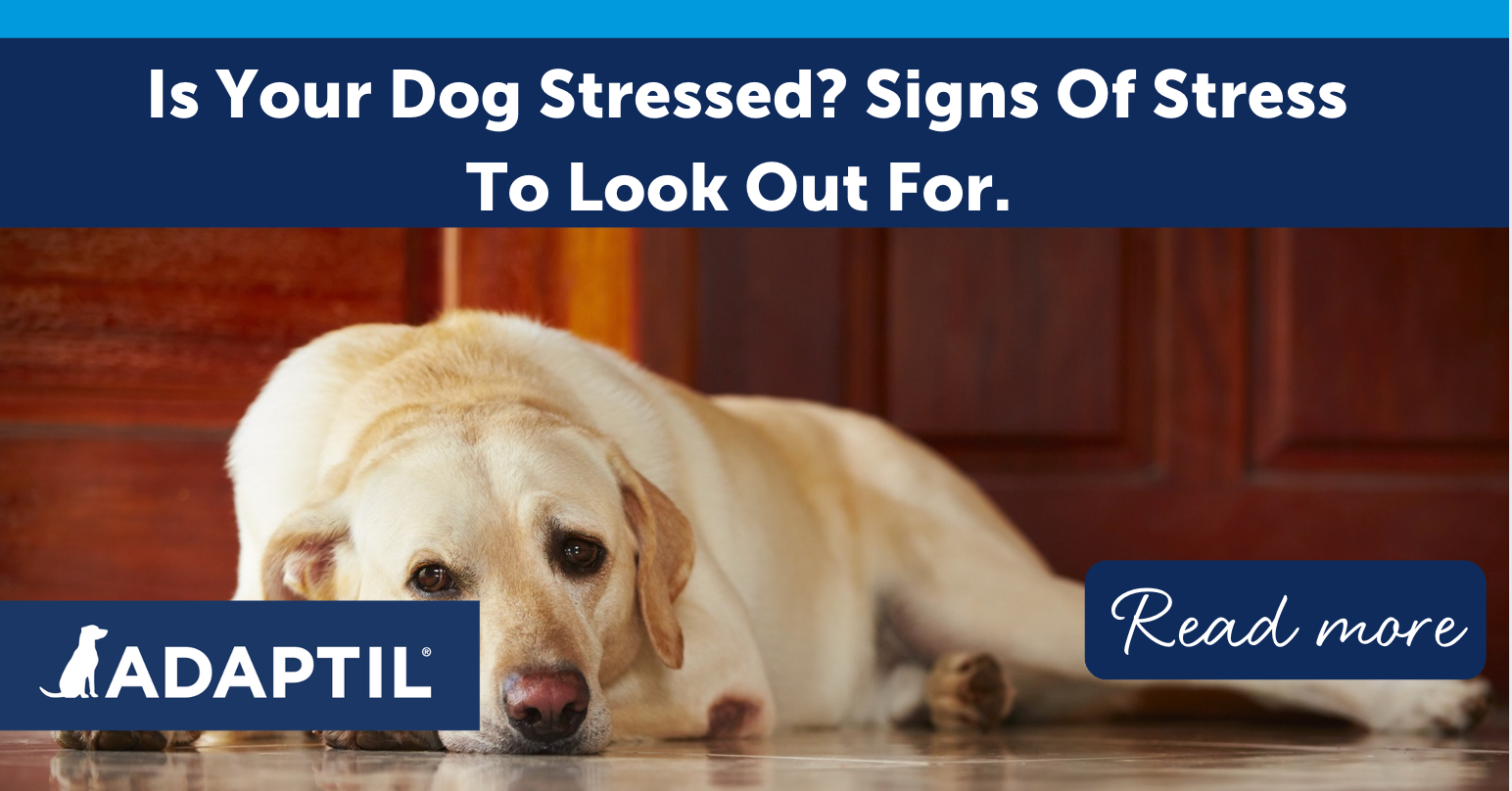
Is Your Dog Stressed? Signs of Stress in Dogs to Watch For
Have you noticed that your pooch is acting a little differently? Stress is not uncommon in dogs and you need to be aware of the signs of doggy stress and what makes your dog uncomfortable so that you can act quickly and help your dog get back to enjoying their pooches' life!
Recognising the signs of stress might be a little difficult, as some signs occur gradually without a dramatic change at first. Think about how your dog behaves and looks when they are happy and content - they will be relaxed, with round eyes, with ears semi-erect and forward facing.
Dogs are typically adaptable and can cope with our busy and changing lives - but some dogs find it harder to adapt to different situations and get unsettled if their routine is not maintained.
Has their mood changed, are they fretting or has their appetite been affected? As soon as you notice any character changes, or changes in their overall behaviour, you should try to understand the reasons behind the change and take actions to help your dog - an unhappy or nervous dog can be a concern, and sometimes this can manifest in aggression towards other animals, or people.
Signs of Doggy Stress to Look Out For
First of all, remember that all dogs are individuals - they will have their own character traits which should be considered when you're trying to check how your pet is feeling!
Is your dog normally confident and independent; are they laid back and happy, or are they often shy or timid? Remember to take these traits into account if you are concerned about doggy stress.
Here are some typical signs of doggy stress to watch out for:
Are they blinking, turning their head away, lip licking, or yawning excessively?
- Are they crouching with their tail between their legs?
- Have their energy levels dropped and they are sleeping more than usual?
- Are they trying to move away and hide, when they are normally sociable characters? There may be something that is disturbing or frightening them - are there any unusual loud noises around (like fireworks) that may be distressing them?
- Panting - as well as panting when they are hot, dogs can also pant more if they are stressed. If they are hot, they will also look for some shade but if it's not a hot day, their panting could mean they are not happy.
- Check if their eyes are dilated - this could be a sign of unease
- Shaking, trembling or salivating could also mean that they are scared or feeling threatened
- Whining or barking - if they are whining, it could mean something simple like they want to go out for a pee, but if they are whining for no apparent reason, they are unsettled about something.
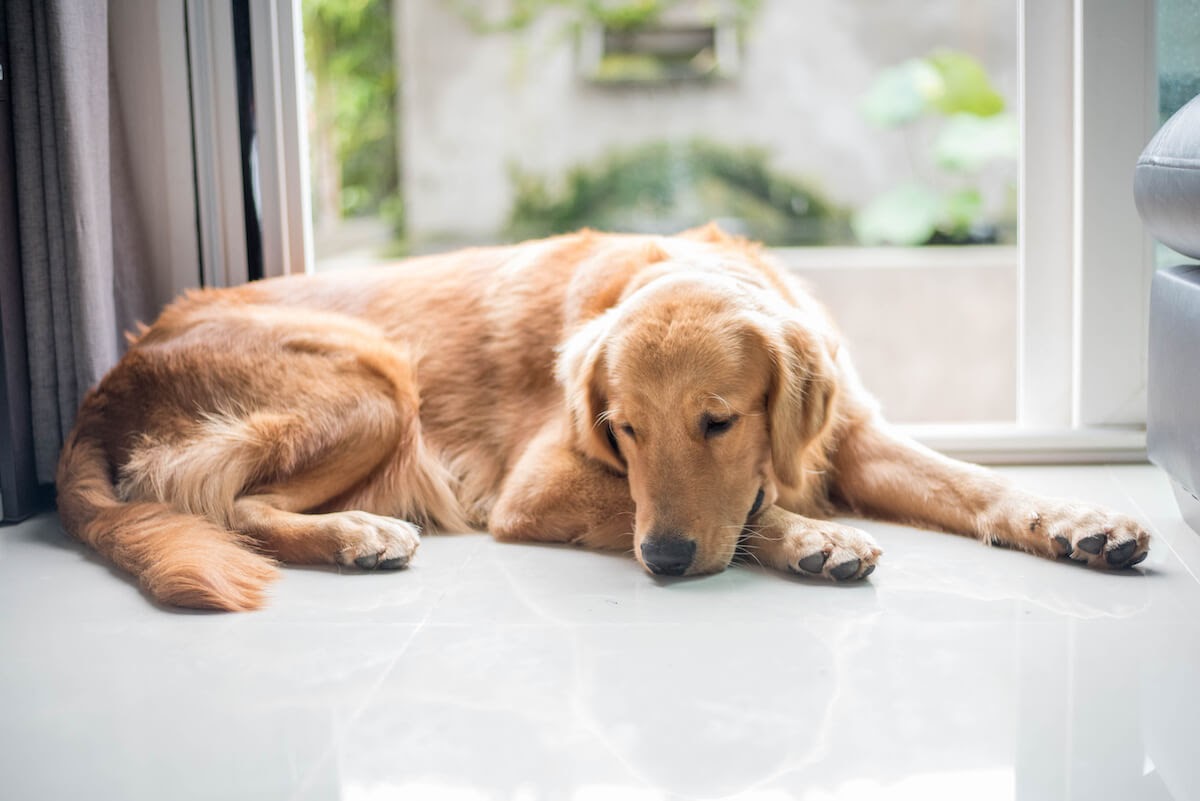
Try to Find the Cause
If your dog is showing any of these signs, you may be able to work out the cause of their stress quite easily.
Is there something new in the home that they don't like?
Some dogs don't like vacuum cleaners and can get quite vocal and scared as they see them as a threat. If this is the case, put your dog in a different room until you've finished cleaning.
Stress may also be caused by a routine change like when you need to leave your dog alone at home while you are at work, or a big change - moving is stressful. See if you can help your doggo by introducing change slowly or helping them to adjust. If you have to be out more often, see if a neighbour who knows your dog can pop in and check on them. Or, if you've introduced your doggo to a new environment, make sure they can access their cozy den at all times!
It's essential to try and solve any stress issues as soon as you can, to make your dog feel more relaxed and comfortable, but also prevent any worsening of fears. If stress goes on too long, it can lead to chronic stress or even aggressive behaviour, either towards other pets or people - leading to growling, snapping or biting.
How to Help Your Pawsome Pal!
You can help your pooch feel less stressed by identifying and removing the cause where possible.
Training and socialising are essential from an early age to help your dog adjust and cope with normal life situations. Teaching them not to be scared of everyday noises, like cars and traffic, will make for a more harmonious relationship!
However, if you are unable to identify why your dog is feeling unhappy and stressed, always consult your vet to check for any underlying health conditions.
Want to create a supporting home environment for your pet? Using an ADAPTIL Calm Home Diffuser in your home, in the space where your dog spends the most time, can help to support them everyday - and give them confidence they need when they face change or new situations.


